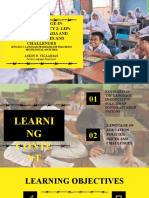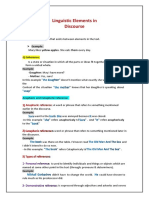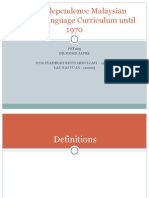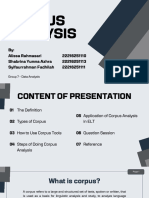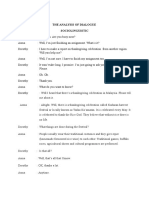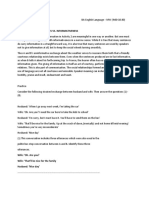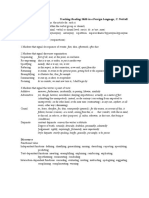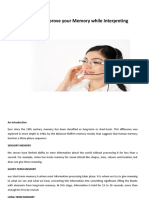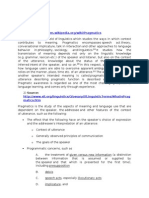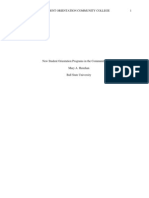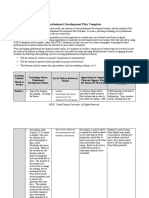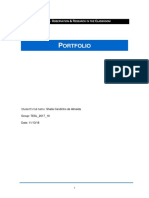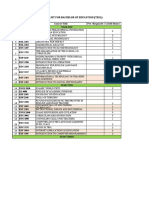0% found this document useful (0 votes)
232 views2 pagesDiscourse Analysis in Language Teaching
The document discusses the relationship between discourse analysis and language teaching. It provides four applications of discourse analysis: 1) to teaching grammar, focusing on grammar elements in context, 2) to teaching vocabulary by organizing words into groups based on context of use, 3) in second language writing by having students analyze written discourse to personalize their learning and develop writing versatility, 4) to teaching text interpretation by emphasizing that understanding relies on both the author and reader.
Uploaded by
Lucia CorvalanCopyright
© © All Rights Reserved
We take content rights seriously. If you suspect this is your content, claim it here.
Available Formats
Download as DOCX, PDF, TXT or read online on Scribd
0% found this document useful (0 votes)
232 views2 pagesDiscourse Analysis in Language Teaching
The document discusses the relationship between discourse analysis and language teaching. It provides four applications of discourse analysis: 1) to teaching grammar, focusing on grammar elements in context, 2) to teaching vocabulary by organizing words into groups based on context of use, 3) in second language writing by having students analyze written discourse to personalize their learning and develop writing versatility, 4) to teaching text interpretation by emphasizing that understanding relies on both the author and reader.
Uploaded by
Lucia CorvalanCopyright
© © All Rights Reserved
We take content rights seriously. If you suspect this is your content, claim it here.
Available Formats
Download as DOCX, PDF, TXT or read online on Scribd
/ 2
